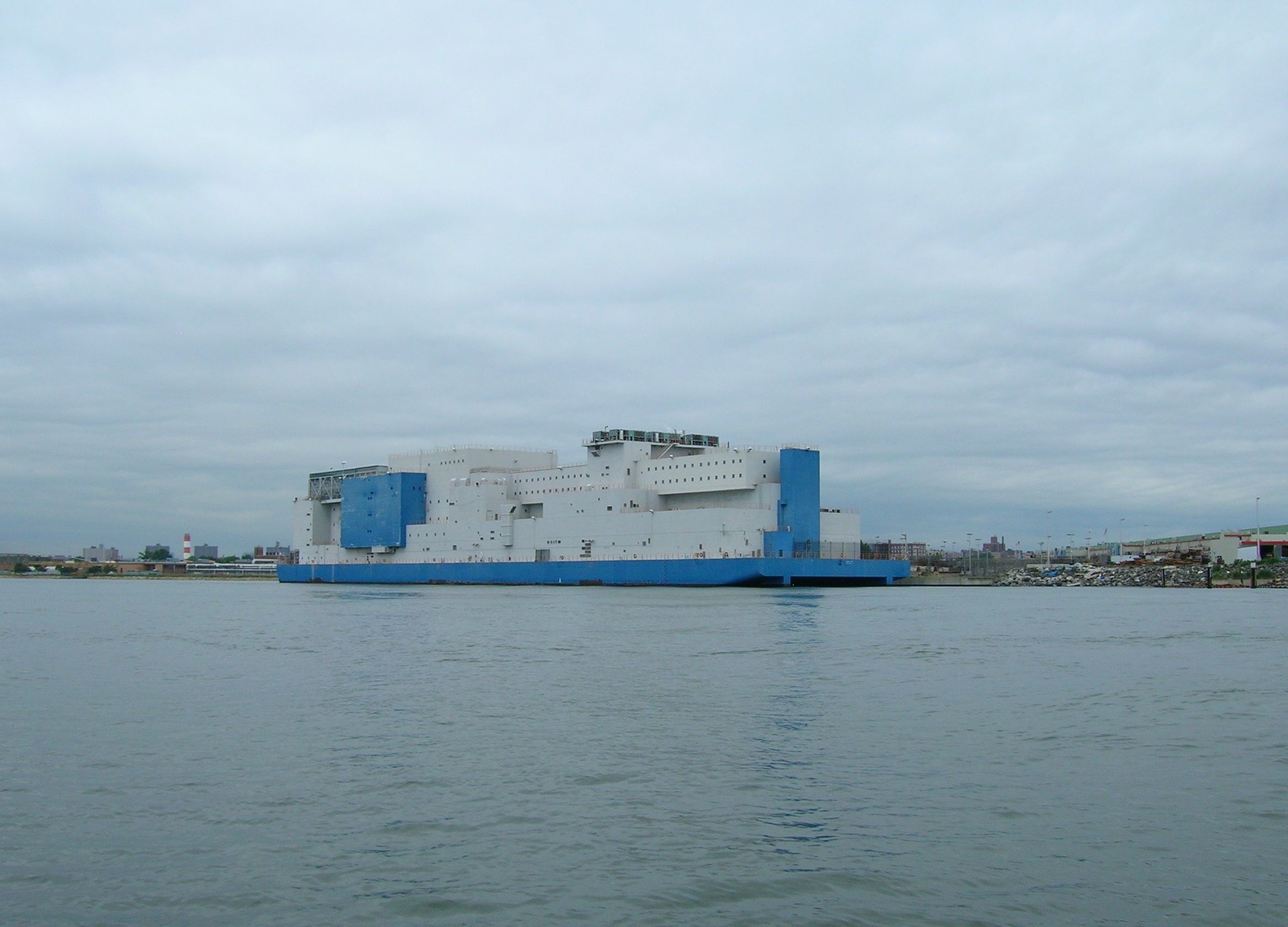New York City’s “floating jail” is set to close next month, more than 30 years after it was opened on a temporary basis.
Known as “The Boat” to clients and corrections staff, the Vernon C. Bain Center, located off the southeastern tip of Hunts Point and part of the Rikers Island prison complex, holds the Guinness World Record for the largest prison barge on the planet.
In a statement to the Hunts Point Express, the NYC Department of Correction confirmed the impending closure of the prison barge in October but declined to offer a specific date.
About 500 detainees and 200 correction officers and staff are expected to be brought to jails on Rikers Island and sent to other facilities.
“The reason for this move is to centralize operations on the island to more efficiently manage people in custody and deploy staff and resources,” a Department of Corrections statement reads.
The statement added that the process is already underway to have all detainees removed in October.
Named after a Rikers Island employee who died in a motor vehicle crash, the Vernon C. Bain Center cost $161 million to build and opened in 1992.
At the time – the height of the “war on drugs” — more than 20,000 people were incarcerated on Rikers Island, and the barge was slated to open temporarily to address overcrowding. Now, fewer than 6,000 people are locked up at Rikers, but the floating prison has remained open, at an estimated annual cost of $24 million.
It’s not the first time the makeshift jail facility has closed. Officials closed it in 1995 after concerns of overcrowding subsided, but it was later reopened by then-Mayor Rudy Giuliani in 1998 as a juvenile detention center and soon was transformed back into a jail for adults.
Jullian Harris-Calvin, director of the Vera Institute of Justice’s Greater Justice New York program, says the prison barge has “stood as a symbol of New York City’s decades-long commitment to mass incarceration.”
Noting that “The Boat” was never meant to be a permanent facility, Harris-Calvin told the Hunts Point Express in a statement that the prison barge’s legacy will be in the families and communities it decimated for generations.
“We hope ‘The Boat’ is never again used to warehouse people living in this city,” Harris-Calvin said.
Monica Mohapatra, a member of the abolitionist collective Survived and Punished, is pleased to hear the facility is closing, but concerned about what will be done with it in the future.
“‘The Boat’ is notorious,” Mohapatra said. “The fact that it’s still open, I think, is a real travesty, and it should be embarrassing to New York City.”
Under the city’s Borough-Based Jails Plan to close Rikers entirely and move prisoners to new borough jails by 2027, the barge’s closure eventually will be followed by the opening of a new jail in Mott Haven. That reality leaves abolitionists like Mohapatra with what she calls “bittersweet feelings” about the closure of “The Boat.”
“It’s been a site of immense torture, there have been multiple escapes,” Mohapatra said. “So many incarcerated people have talked about how violent it is inside, how inhumane the conditions are.”
Mohapatra is concerned that the facility could just be reopened at a later date, as occurred when Giuliani was mayor. In the meantime, she’s worried it may be used by the city to house migrants.
Not everyone was pleased with the announcement. The Correction Officers’ Benevolent Association, the union that represents prison guards, said closing the floating jail would not solve the longer-term problem of understaffing at all Rikers facilities.
“We need more officers and we need them now,” Benny Boscio, the union president, told The Daily News.

